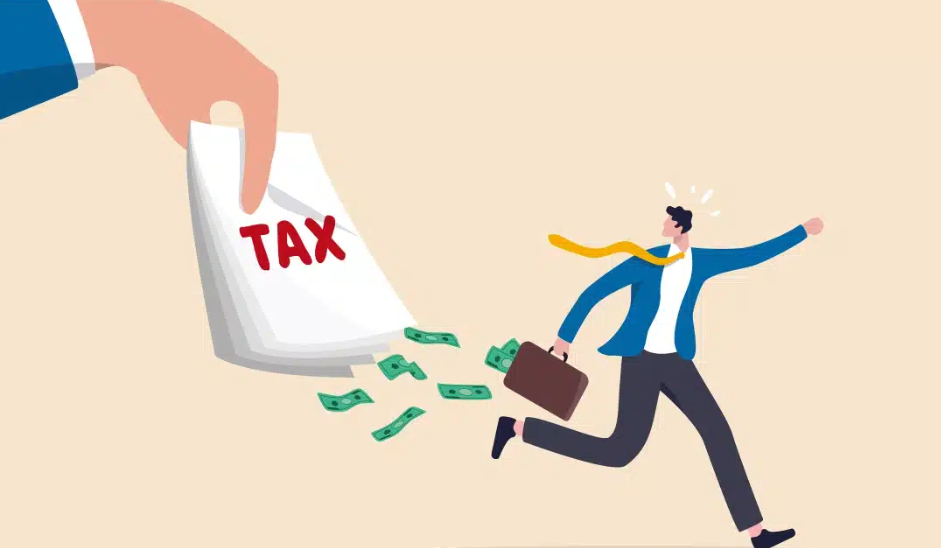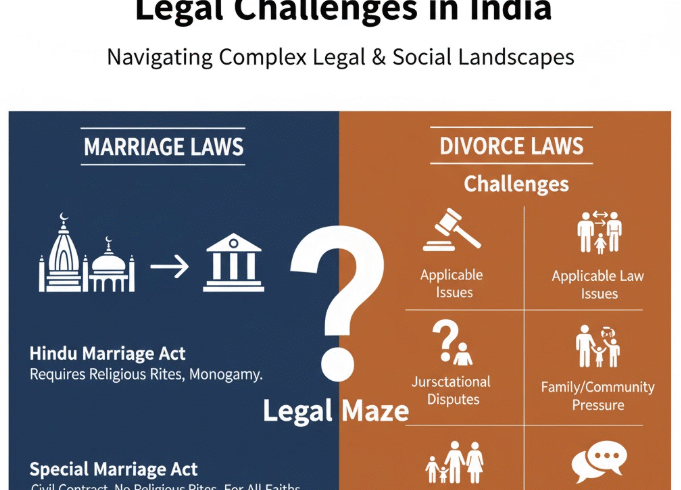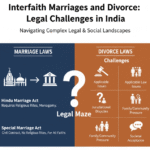Is It Legal to Pay Less Tax Than You Owe? Here’s How
Did you know? It’s the reason most Indians pay more tax than is due; they’re not aware of the legal methods to save money. You work hard for your money so it only makes sense that you should keep more of it in your pocket.
The approach of the tax season pinches millions of Indian taxpayers every year. Whether you’re a salaried employee, small-business owner or freelancer, taxes can consume much of what you earn. But the good(ish) news is: The Indian government actually WANTS you to save tax! That’s also why the Income Tax Act has many legal strategies written into it that allow you to lower your tax bill.
In this article, I am going to reveal to you specifically how you can pay less tax without crossing any line. We’ll delve into some strategies that anyone can implement, such as investing thoughtfully and taking deductions that you might not even be aware of. By the end, you’ll have a solid plan for legally keeping more of your hard-earned income.
What Is ‘Tax Avoidance,’ Anyway?
But before we dive into the strategies, let’s clear up some misinformation. There’s a huge difference between tax evasion and tax avoidance, and it’s important to understand what that difference is.
Avoiding tax means only taking advantage of what the government allows. It’s as if the law had created a shortcut for you. And it’s perfectly legal to do so, and encouraged.
Tax evasion, on the other hand, is not paying taxes to cover up income; providing false information or ignoring tax laws to avoid making payments you owe. This does something that’s illegal and can get you in very hot water with fines, penalties and even jail time.
Some reminders: Smart tax planning is your right as a citizen. These are options that Income Tax Department itself has thrown into the mix to incentivize people to save and invest, grow the economy.
For more guidance on tax planning, visit https://zistalegalis.com.
Common Methods for Legally Reducing Your Taxes
Section 80C: Your Saviour from Tax Drowning
Section 80C: Without doubt the most popular tax-saving section in India. It enables you to avail deductions worth up to ₹1.5 lakh per annum. Here’s what qualifies:
| Investment/Expense | Limitation of Benefits | Lock-in Period |
|---|---|---|
| Public Provident Fund (PPF) | ₹1.5 lakh | 15 years |
| Employee Provident Fund (EPF) | ₹1.5 lakh | Till retirement |
| Equity Linked Savings Scheme (ELSS) | ₹1.5 lakh | 3 years |
| National Savings Certificate (NSC) | ₹1.5 lakh | 5 years |
| Life Insurance Premium | Up to ₹1.5 lakh | Varies |
| Sukanya Samriddhi Yojana | ₹1.5 lakh | 21 years |
| Tuition Fees (for 2 children) | Up to ₹1.5 lakh | None |
| Home Loan Principal Repayment | ₹1.5 lakh | None |
Pro Tip: ELSS mutual funds enjoy the lowest lock-in period (3 years only) out of all 80C options and can potentially offer better returns than traditional saving schemes.
Health Insurance: Section 80D
Medical bills can deplete your savings fast. That is why the government promotes health insurance with tax benefits under Section 80D:
- Deduction of up to ₹25,000 against health insurance premiums paid for self, spouse and children
- Another ₹25,000 for your parents’ health insurance (when they’re under the age of 60)
- Extra ₹50,000 for your parents’ health insurance (if they are senior citizens aged over 60 years)
- Additional ₹5,000 for preventive check-ups on health
That simply means a family with parents who are senior citizens can avail up to ₹1 lakh of deductions from health insurance alone!
Home Loan Benefits: Section 24(b) and 80EE
Some excellent tax-saving opportunities are available to you if you have a home loan:
Section 24(b): You can claim up to ₹2 lakh a year as deduction on the interest paid on the home loan. This applies to self-occupied properties.
Section 80EE: There is an additional deduction of up to ₹50,000 on interest for first-time home buyers where the property value should not exceed ₹50 lakh and loan amount should be within ₹35 lakh.
Limit of the Maximum Tax Reduction (in ₹)
- Section 80C: ₹1,50,000
- Home Loan Interest (24b): ₹2,00,000
- Health Insurance (80D): ₹1,00,000
- Education Loan Interest: No limit
- NPS (80CCD(1B)): ₹50,000
Education Loan: Section 80E
If you have taken an education loan for higher education (for yourself, your spouse or children) then the interest paid can be claimed as a deduction. The best part? There’s no cap on the amount you can claim, and it’s available for up to 8 years or until your interest is paid off in full, whichever comes first.
Learn more about tax deductions at the Income Tax Department’s official website.
National Pension System (NPS): Section 80CCD(1B)
Most of the people today have started enrolling in National Pension Scheme since its tax benefits were announced.
The NPS is a retirement savings vehicle which provides an extra tax break of ₹50,000 over and above the ₹1.5 lakh limit under Section 80C, meaning you can claim tax deduction of up to ₹2 lakh (₹1.5 lakh under 80C + ₹50,000 under 80CCD(1B)) by investing in this scheme.
Opting Between Old and New Tax Regime
Taxpayers have two options to select their Income Tax Regime since April 2020. This decision can make a big difference in how much tax you owe.
Old Tax Regime
Under the old regime, you can claim all the deductions and exemptions we discussed above (80C, 80D, 24(b) etc). But the tax rates are a little bit higher.
New Tax Regime
The new regime provides for lower rates but does not permit most deductions and exemptions. The new regime has been made the default from April 2023, but you can continue with the old if it is more beneficial.
| Income Slab (₹) | Old Regime Tax Rate | New Regime Tax Rate (FY 2024-25) |
|---|---|---|
| 0 – 2,50,000 | Nil | Nil |
| 2,50,001 – 5,00,000 | 5% | 5% |
| 5,00,001 – 7,50,000 | 20% | 10% |
| 7,50,001 – 10,00,000 | 20% | 15% |
| 10,00,001 – 12,50,000 | 30% | 20% |
| 12,50,001 – 15,00,000 | 30% | 25% |
| Above 15,00,000 | 30% | 30% |
Which regime should you choose? If you have home loans, insurance, 80C investments and the many other investments and expenses you may have that are eligible for deductions, the old regime might be better. The new regime, with its lower tax rates, could save you more if you don’t have a lot of deductions.
Smart Strategies for Salary Earners
House Rent Allowance (HRA)
If you are living in a rented house, you can avail HRA (House Rent Allowance) exemption. The exemption is the lesser of:
- Actual HRA received
- 50% of salary (in case of metro cities) or 40% (if you are living in non-metro city)
- Rent paid minus 10% of salary
Even if your employer is not offering HRA, you can still claim deductions under Section 80GG for paying rent, provided it does not exceed ₹5,000 per month.
Leave Travel Allowance (LTA)
You are eligible for LTA exemption twice in a block of four years. The exemption is for you and your family’s domestic travel costs. Be sure to retain your tickets and boarding passes as evidence.
Standard Deduction
All salaried individuals are allowed a standard deduction of ₹50,000 from their gross salary. It’s automatic when you file your returns, and since it is easy to become eligible for, it’s good to know that in the background it is reducing your taxable income.
Tax Savings Tips for Business Owners & Professionals
If you own a business or are an independent contractor, you have other ways to help cut your tax bill:
Business Expenses
All reasonable business-related expenses must be subtracted from your income:
- Office rent and utilities
- Employee salaries
- Travel expenses for business purposes
- Internet and phone (business proportionate use)
- Depreciation on investments, including computers, vehicles and equipment
- Professional fees (CA, lawyer, consultant)
Presumptive Taxation Scheme
Small businesses and professionals can even opt for presumptive taxation under Sections 44AD, 44ADA, and 44AE. This means:
- You declare a part of your turnover as income (either 8% for digital transactions or 6% for others under 44AD)
- No more complex books of account to be maintained
- Reduced compliance burden
For expert legal and tax advice, visit https://zistalegalis.com.

Other Smart Tax-Saving Moves
Charitable Donations: Section 80G
Donations to registered charities, NGOs or relief funds can help you get deductions between 50% and 100% of your donation. The other options are PM Relief Fund, National Defense Fund and entities approved by it.
Interest from Saving Account: Section 80TTA/80TTB
For people less than 60 years old, the interest earned on savings account up to ₹10,000 is exempt under Section 80TTA. This limit is ₹50,000 for senior citizens under Section 80TTB and includes interest income from fixed deposits too.
Agriculture Income
Agriculture income in India is totally 100% tax free. But you have to keep good records, and the land should be genuinely employed for farming.
-
🏛️ India’s tax laws need urgent reform—here’s why: Why Tax Laws in India Need an Urgent Overhaul
Common Mistakes to Avoid
In their bid to save tax, here are the mistakes many people make that might prove costly:
Only Invest in March: Don’t procrastinate until the final moments. Develop strategies for better returns on your investments throughout the year.
Failing to hold on to documents: Receipts, statements and certificates should never be discarded. You’ll need it if the tax department requests evidence.
Over-insuring: It is not wise to purchase insurance just for the sake of tax benefit. Buy only what you need.
Ignoring Form 16: Your Form 16 is important. Check it over carefully to make sure that all of the details match with your actual income and deductions.
Not filing returns on time: Irrespective of whether you owe a tax or not, file your returns before the deadline and stay out of trouble by keeping your account clean.
False deductions: Never file false paperwork or claim deductions to which you are not entitled. The IT Department possesses advanced fraud detection capacities.
Your Tax Strategy, Year-Round
Saving taxes shouldn’t be a last-minute panic in March. Here’s how to do it smartly:
April-May: Reflect on last year’s investments and start planning for this year. Set your investment goals.
June-September: Start your 80C investments. Buy health insurance. If required, initiate SIPs for ELSS.
October-December: Review your progress. Adjust if your income or expenses changed at all.
January-March: Complete remaining investments. Collect all documents. File your returns.
Smart Move: Partner with an experienced Chartered Accountant, especially if you have multiple sources of income or complex financial scenarios. What you pay them in fees can save you orders of magnitude more in taxes and costly mistakes.
Frequently Asked Questions (FAQs)
Q1: Can I switch between old and new tax regime every year?
Yes, if you are a salaried employee, you could shift between regimes every year. If you do have business income, though, you may only switch back to the old regime once.
Q2: Can you legally owe no taxes?
Absolutely! If your gross total income falls below the basic exemption limit (₹2.5 lakh for individuals, ₹3 lakh for senior citizens), or your taxable income falls below the threshold after all deductions, you need not pay tax. This is completely legal.
Q3: Can I get HRA and home loan benefits together?
Yes, but only if you reside in a rented property in one town and own a home in another. Both the properties have to be distinct and also genuine use must be established.
Q4: What if I invest in any of the 80C options but withdraw early?
If you withdraw before the lock-in period, the tax benefit you obtained would be added back to your income of that year and taxed, along with interest. Always analyze lock-in periods before you invest.
Q5: Do I need to file returns even if my income is not exceeding the taxable limit?
You don’t have to, but it’s really better if you do. Not only does filing returns allow you to claim refunds, but it also becomes evidence of income for any loans and keeps your financial record clean. That’s especially crucial if your income had TDS deducted from it.
Q6: Can I get tax benefits on cryptocurrency investments?
No, for now cryptocurrency gains would be taxed at 30% (plus surcharge and cess) with no deduction except cost of acquisition. Moreover, cryptocurrency losses are not allowed to be written off against other incomes.
Q7: Which is preferable—higher income or more allowances?
It depends on your situation. Allowances like HRA and LTA can be tax-free if conditions are met, which in return decreases your taxable income. But a higher basic salary equals a higher PF contribution, which is good for retirement but it also locks your money up. Talk with your employer to find the right combination.
Q8: Can I take deductions for my parent’s expenses?
Yes, you can avail deductions on health insurance premiums paid for your parents under Section 80D and also for medical expenses (in case of senior citizens not covered by health insurance up to ₹50,000).

Final Thoughts: Your Money, Your Right!
We all pay tax – it’s part of being a responsible member of society. But there is simply no need to pay more than you should. The Indian Tax system has got plenty of provisions built into it, so that you can keep as much money as possible that you earned. Right from investments under Section 80C to health insurance, home loans and smart salary structuring, there are various perfectly legal routes for reducing your tax burden.
Early planning, systematic preparation and knowledge about the latest tax rules and benefits are the key. Don’t look at tax saving as a March tradition. Make it an ongoing way of handling your finances. Keep good records, know what you’re invested in and don’t ever hesitate to get professional assistance when you need it.
Good to remember that every rupee saved on tax is a rupee you can use for your dreams, or your family’s future or even for some financial security. So in the most legal and sensible way, take control of your taxes. Your future self will thank you for it!
For more insights on legal and tax matters, visit https://zistalegalis.com.





